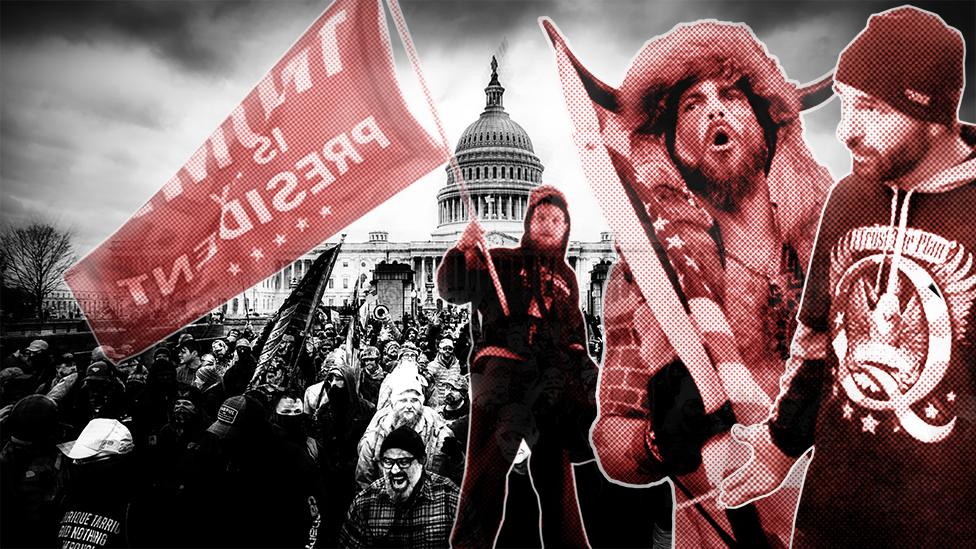Biden inauguration leaves QAnon believers in disarray
- Published
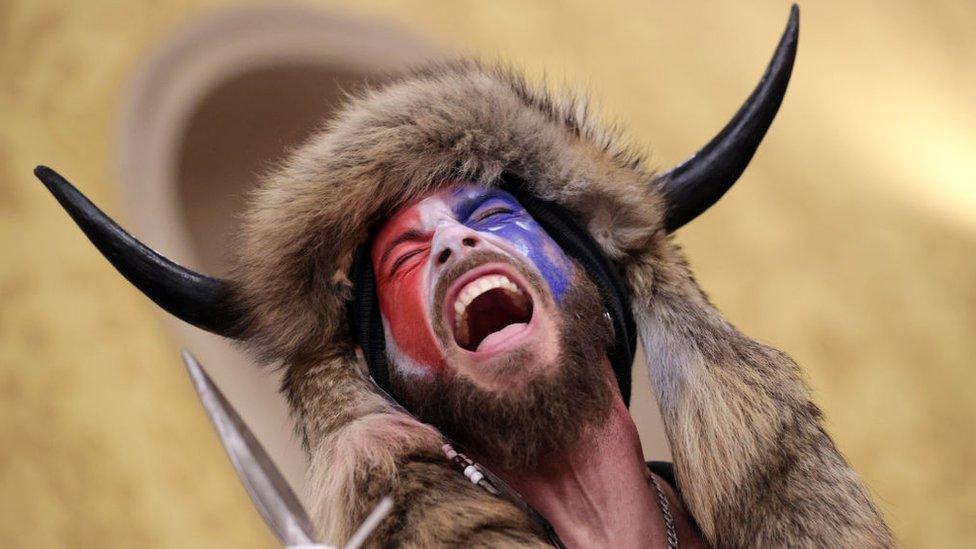
Influential QAnon figures were among those who joined the Capitol riots
Followers of the baseless QAnon conspiracy theory are divided after Joe Biden's inauguration confounded their predictions that Donald Trump would remain president in order to punish his enemies in the "deep state".
Many reacted with shock and despair as Joe Biden was sworn in as the 46th US president.
"I just want to throw up," said one in a popular chat on the Telegram messaging app. "I'm so sick of all the disinformation and false hope."
Others insisted "the plan" had not failed, finding new theories to latch on to.
For weeks, QAnon followers had been promoting 20 January as a day of reckoning, when prominent Democrats and other elite "Satanic paedophiles" would be arrested and executed on the orders of President Trump.
But, as Mr Biden took his oath and no arrests were made, some in the QAnon community had an uncomfortable meeting with reality.
"It's done and we were played," wrote another.
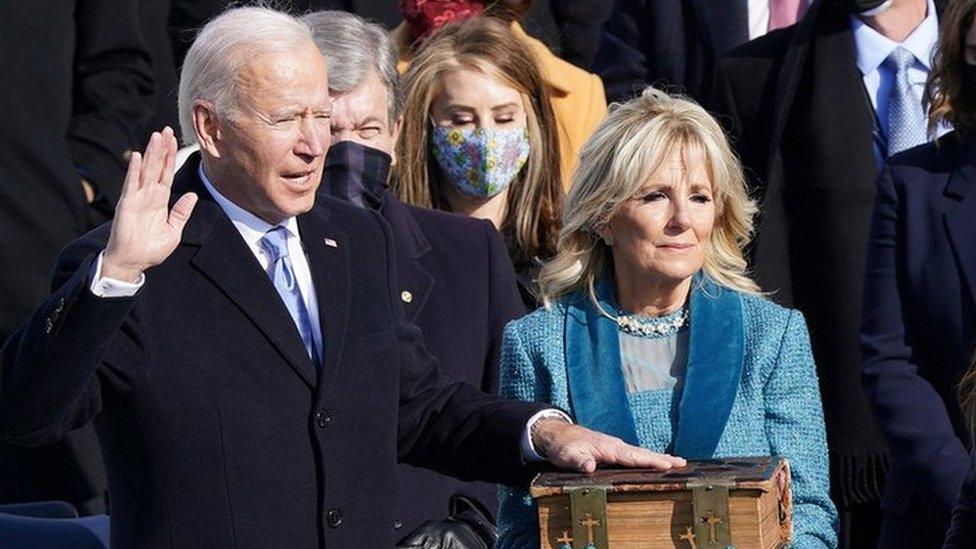
Joe Biden's inauguration passed off without major incident, dashing the hopes of Q followers
In the hours that followed, thousands more made similar comments on platforms like Gab, Telegram and other online forums where believers go to discuss the conspiracy, after being kicked off mainstream social media in the wake of the Capitol riots.
Doubt even seeped into posts by some of the biggest influencers of the movement, as some started to question the phrase "Trust the plan" - a key QAnon slogan that has been used by "Q", an anonymous figure whom followers believe to be an influential government insider.
"This is a very difficult day for all of us," said one influencer whose Twitter account with 200,000 followers was recently suspended.
"Today's inauguration makes no sense to the Christian patriots and we thought 'the plan' was the way we would take this country back."
One woman whose husband is a QAnon follower told the BBC that inauguration day had been "the most disappointing" of his life.
She's hopeful Wednesday's events may have shaken his faith in the conspiracy, but fears what comes next.
"I'm not a told-you-so kind of person and never seek to belittle or humiliate," she said, adding that his beliefs had put a strain on their marriage in recent months.
A historic inauguration in unusual times
The QAnon community "risks fracturing", said another influencer on Gab, a right-wing social media platform, adding that "real friendships might be irreparably damaged because people are angry".
The widely accepted belief within the movement was that at some point before Joe Biden stepped on the stage to take the presidential oath, members of the military - on the orders of Mr Trump - would intervene to arrest Mr Biden and his wife along with Kamala Harris, Nancy Pelosi, Chuck Schumer, Barack and Michelle Obama, Hillary and Bill Clinton, George and Laura Bush and other members of "the deep state".
A number of extremist and neo-Nazi Telegram channels have already tried to capitalise on the chaos in the QAnon community, asking their members to seek out and convert distraught followers.
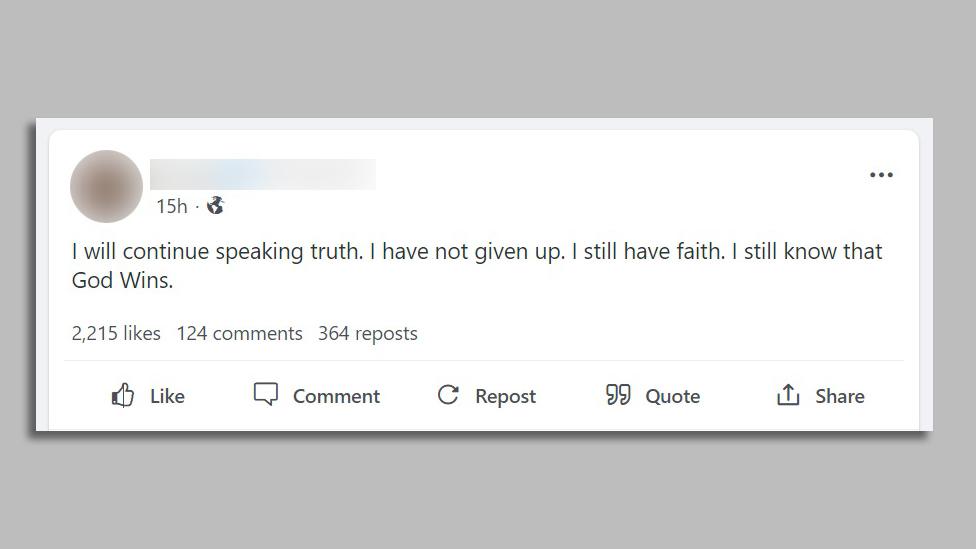
Some QAnon influencers refused to give up after the promised day of reckoning failed to materialise
Some influential accounts told followers to keep the faith and not give up so easily.
One popular Telegram channel reassured its 130,000 subscribers that Mr Trump and the "Q" team were still in control behind the scenes, and the "evil deeds" of the deep state would be exposed "over the next four years".
Some doubled down, criticising those who in their view had rushed to judgement.
One claimed Mr Biden was running his administration as an inmate inside a military compound, but he "doesn't know it yet".
Later in the day, Ron Watkins, one of the most influential figures in the QAnon community, called on his followers to move on - to the surprise of many observers.
The son of Jim Watkins, the man behind 8chan and 8kun - message boards filled with extreme language and views, violence and extreme sexual content on which "Q" posts - the younger Watkins has been one of the main purveyors of election conspiracies and played a vital role in encouraging some QAnon supporters to gather in Washington DC on 6 January.
"We gave it our all," he said to his 120,000 subscribers on Telegram.
"Now we need to keep our chins up and go back to our lives as best we are able."
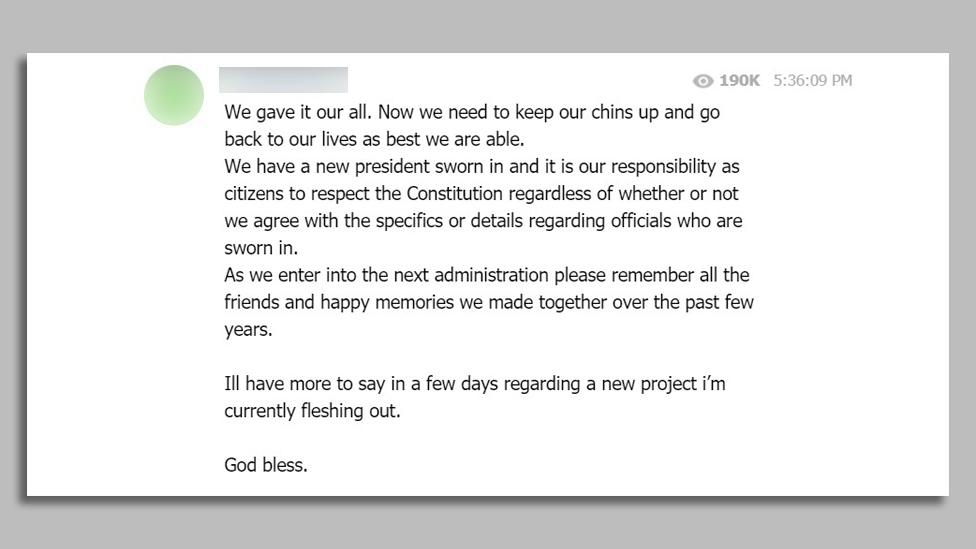
Ron Watkins, a prominent QAnon influencer, appeared to throw in the towel after the inauguration
As inauguration day drew to a close, QAnon communities were still filled with mixed emotions.
Some said they were waiting for "Q", who has been largely silent since election day, to post as they had so many unanswered questions.
And some expressed hope that Mr Trump would communicate directly with them soon.
A considerable chunk of the community remains steadfast in their belief, urging one another to remain patient and keep the faith.
It is difficult to predict where the movement goes from here.
But some experts and researchers think that QAnon, which has successfully duped hundreds of thousands of followers into thinking they alone could stop a global cabal of criminals ruling the world, will not simply vanish overnight.
Followers "will likely remain a threat until they can exit the QAnon space", tweeted extremism researcher Marc-Andre Argentino, external.
"Even without QAnon, without 'Q', without Trump, the core elements that lead these individuals to believe in QAnon will still remain and they will need to find outlets for their conspiratorial mindsets and their anti-democratic ideals," he added.
Additional reporting by Marianna Spring

Subscribe to the BBC Trending podcast or follow us on Twitter @BBCtrending, external or Facebook, external.
Related topics
- Published6 January 2021
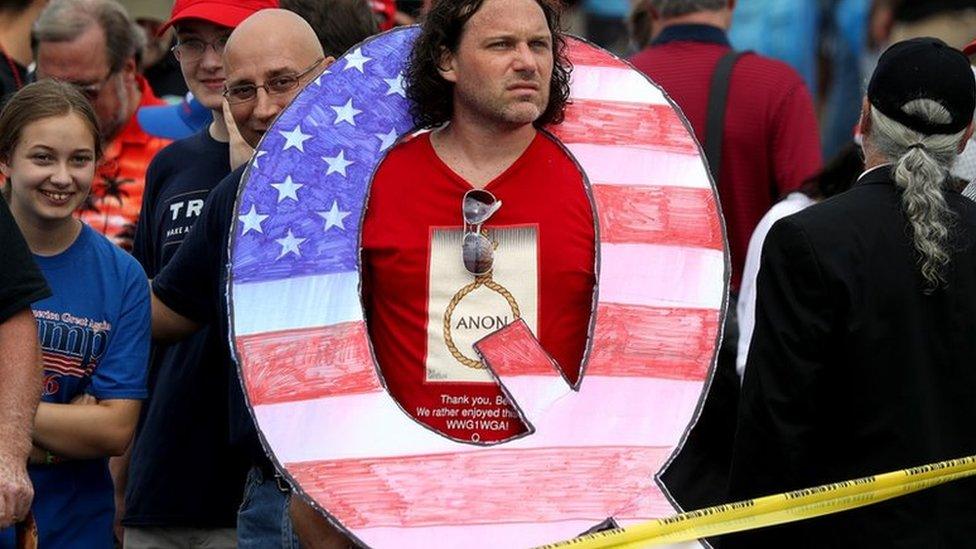
- Published10 January 2021
